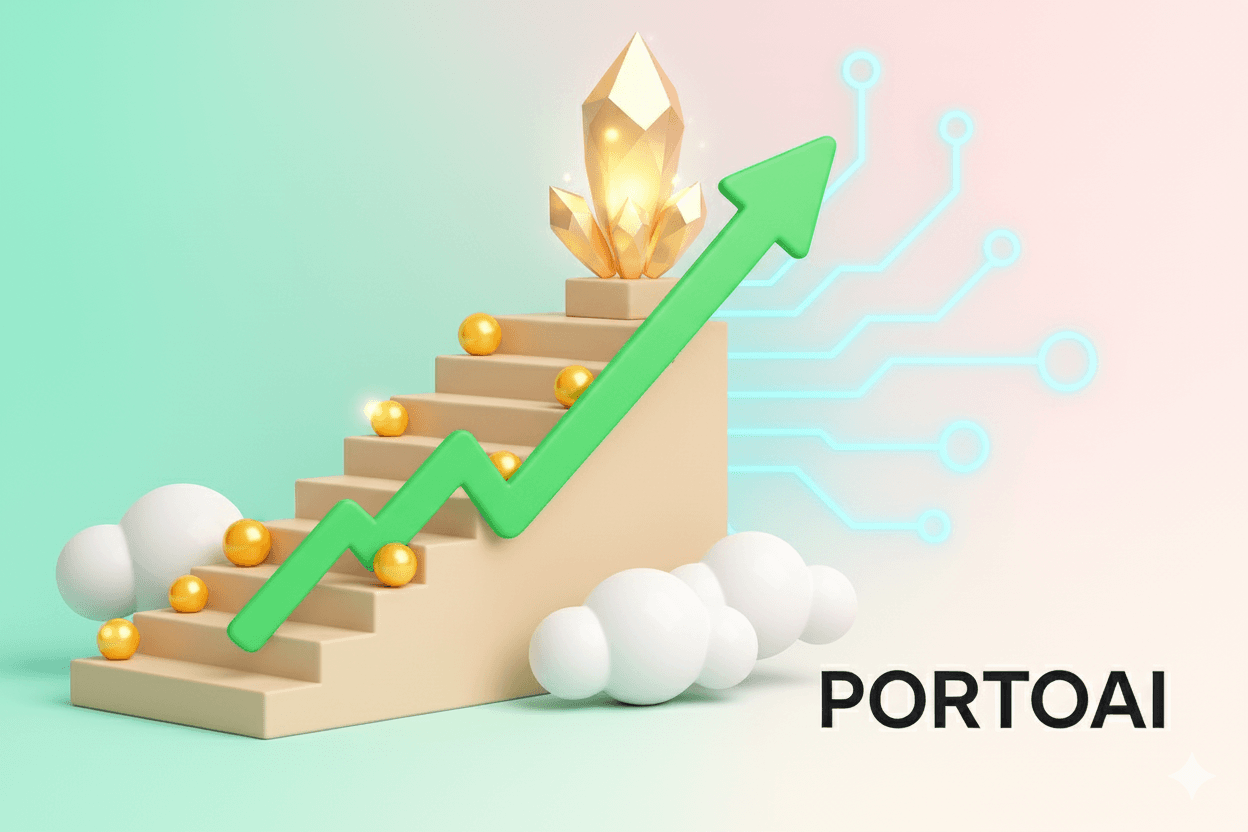ABG Shipyard Scam: Lessons for Investors on Due Diligence

Venkateshwar Jambula
Lead Market Researcher
4 min read
•Published on September 7, 2024
•ABG Shipyard Scam: Key Lessons for Investors on Financial Due Diligence
The ABG Shipyard Limited (ABGSL) case, involving an alleged fraud of Rs 22,842 crore against a consortium of 28 Indian banks, serves as a stark reminder of the critical importance of rigorous financial due diligence and robust risk management in investment decisions.
Unraveling the ABG Shipyard Fraud
Federal authorities in India have charged ABG Shipyard, its promoters, and unnamed public servants with orchestrating one of the largest bank frauds in the nation's history. The investigation by the Central Bureau of Investigation (CBI) uncovered evidence suggesting the diversion of funds, leading to charges against key directors. This complex scheme involved allegedly defrauding a group of banks led by ICICI Bank, with the State Bank of India (SBI) ultimately filing the initial complaint.
The Unfolding of the Scam
- Initial Financing and Restructuring: ABG Shipyard operated under a consortium loan structure. By November 2013, the company's deteriorating performance led to its account becoming a Non-Performing Asset (NPA).
- Failed Restructuring: In March 2014, banks attempted to restructure the debt via the Corporate Debt Restructuring (CDR) mechanism. However, this effort was hampered by the company's operational issues and unfavorable economic conditions, ultimately failing to revive the company.
- NPA Declaration and Investigation: The account was declared an NPA retrospectively. The scam began to surface when SBI filed a complaint in November 2019, alleging fraud. Subsequent forensic audits by Ernst and Young revealed financial irregularities between April 2012 and July 2017, including fund transfers to subsidiaries and breaches of restructuring terms.
- Legal Proceedings: Following SBI's renewed complaint in August 2020, an FIR was filed in February 2021. The CBI's report highlighted misappropriation and criminal breach of trust, indicating funds were used for purposes other than those intended.
Financial Impact on Banks
The ABG Shipyard scam has had a significant financial impact on the banks involved. According to forensic audit findings:
- ICICI Bank: Faces the largest exposure, with dues amounting to Rs 70.89 billion.
- IDBI Bank: Owes Rs 36.34 billion.
- State Bank of India (SBI): Rs 29.25 billion.
- Bank of Baroda: Rs 16.14 billion.
- Punjab National Bank (PNB): Rs 12.44 billion.
- Indian Overseas Bank: Rs 12.28 billion.
The company is currently undergoing liquidation under the National Company Law Tribunal (NCLT) process, with banks hoping to recover funds through asset sales.
ABG Shipyard's Business Decline
ABG Shipyard, once a prominent player in the shipbuilding and repair industry with significant capacities in Dahej and Surat, specialized in constructing vessels like self-loading and self-discharging bulk carriers. However, a confluence of factors led to its downfall:
- Reduced Demand: A decline in demand for specialized vessels and cargo led to order cancellations.
- Working Capital Crisis: This resulted in a severe shortage of working capital and accumulating inventories.
- Industry Downturn: The commercial vessel industry downturn in 2015 exacerbated the company's financial stress.
- Liquidity Pressure: These challenges significantly increased the financial burden and made loan repayments unmanageable, leading ABGSL to file for insolvency in 2017.
Lessons for Investors and Financial Advisors
The ABG Shipyard case offers critical insights for sophisticated retail investors, financial advisors, and fund managers:
1. Deepen Financial Due Diligence
- Analyze Financial Statements: Scrutinize balance sheets, income statements, and cash flow statements for red flags such as declining revenues, increasing debt, and deteriorating margins.
- Understand Cash Flow: Focus on operating cash flow as a key indicator of a company's ability to generate cash from its core business. Negative or declining operating cash flow can be a warning sign.
- Examine Debt Levels: Assess the company's debt-to-equity ratio and interest coverage ratio to understand its leverage and ability to service its debt.
2. Scrutinize Management and Corporate Governance
- Track Management Changes: Frequent changes in key management personnel or board members can indicate instability.
- Review Related-Party Transactions: Be wary of complex transactions with related entities, which can sometimes be used to mask financial distress or divert assets.
- Assess Transparency: Look for companies that provide clear, consistent, and transparent financial reporting.
3. Monitor Industry Trends and Competitive Landscape
- Understand Cyclicality: Recognize industries prone to economic cycles and assess how companies within them manage downturns.
- Competitive Positioning: Evaluate a company's competitive advantages and its ability to adapt to market shifts.
4. Leverage Advanced Analytics with PortoAI
For investors seeking a data-driven edge, platforms like PortoAI are invaluable. The PortoAI Market Lens can help synthesize vast amounts of financial data, identify market signals, and flag potential risks within companies and industries. By utilizing AI-powered analytics, investors can perform more comprehensive due diligence, identify patterns that might be missed through manual analysis, and gain a deeper understanding of a company's financial health and operational risks. Our risk console further empowers you to quantify and manage potential downside scenarios, ensuring a more disciplined approach to capital allocation.
5. Understand the Impact of Corporate Distress on Markets
While the direct shock to the stock market from the ABG Shipyard news was somewhat mitigated by prior awareness of the company's insolvency filing, significant events like this can still impact market sentiment. Banking sector indices, such as the Bank Nifty, can experience volatility as investors reassess the financial health of lending institutions. Understanding these correlations and potential ripple effects is crucial for portfolio management. PortoAI's goal planner can help you stay focused on your long-term objectives, even amidst market fluctuations.
Conclusion
The ABG Shipyard scam underscores the perpetual need for vigilance and deep analytical rigor in investing. By integrating thorough due diligence, understanding corporate governance, monitoring industry dynamics, and harnessing the power of AI-driven research tools like PortoAI, investors can better navigate the complexities of the financial markets and make more informed, confident decisions.
Blog
Investment Insights and Tips
Explore our latest investment strategies and insights.

Stocks
Master Investment Psychology: Control Emotions for Smarter Stock Decisions
The Psychology of Stock Investment: Understanding Emotions That Affect Investment Decisions A stock market is a funny place – both the seller and buye...
Venkateshwar Jambula
November 7, 2024
•4 min read

Stocks
Power Grid India Stock: Analyzing PGCIL's Price Movements & Future
The Rise and Fall: Unraveling the Power Grid Corporation of India Stock Price The Power Grid Corporation of India Stock Price (PGCIL) has experienced ...
Venkateshwar Jambula
November 6, 2024
•10 min read

Stocks
Are Multibagger Stocks Still Possible in 2025? Your AI Guide
These 6 Multibagger Stocks Exploded in 2025 — Is Your Portfolio Still in 2022? Till June 2025, the benchmark Sensex has risen by around 4%, reflecting...
Venkateshwar Jambula
November 5, 2024
•11 min read

Stocks
Top 5 Indian Growth Stocks & Sectors for 2025: AI-Driven Insights
Top 5 Best Growth Stocks in India & Sectors to Watch in 2025 You see the market correction in late 2024 and early 2025 was driven by weak economic...
Venkateshwar Jambula
November 4, 2024
•9 min read